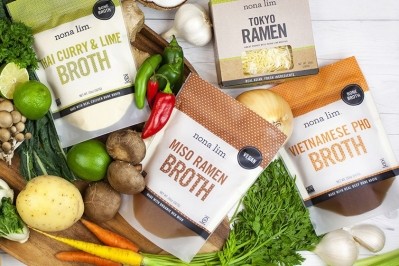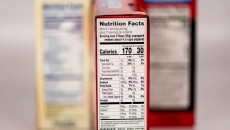General Mills invests in organic to boost sales, ‘do the right thing’

Katrina Heinze explained at the USDA Agricultural Outlook Forum in Washington, DC, Feb. 23-24 that the food giant expects to meet its goal of sourcing organic ingredients from 250,000 acres by 2019 as part of a larger mission “to treat the world with care.”
“The food we grow for all our products depends on a clean watershed … and an operational ecosystem. And we know that the ecological farming practices related to organic can contribute to that,” she said, explaining that by doubling organic acreage, General Mills can “help more farmers do that across the supply chain.”
General Mills is achieving this ambitious goal by investing directing in much-needed organic research, which Heinze says is “really cool” because it is not in a “lock box that only organic can use,” but rather “can apply across the whole agricultural continuum.”
Specially, the company is investing in specialized crops and conducting organic oat variety trails.
The company also is encouraging farmers to transition to organic by paying for associated transition costs, providing education, and developing a market for all the crops used in organic rotations and not just the primary crop.
General Mills also strives to send “clear market signals” to farmers considering organic transition by letting them know that there is a 10-plus year market ahead and that the company will be with them consistently through that period, Heinze said.
Strong sales helps General Mills do the right thing
Of course, “doing the right thing” by supporting the development of organic crops is easier when there is also a strong financial argument to do so – as in the case of organic.
By increasing its organic acreage, General Mills is on track to grow its natural and organic portfolio to $1 billion by 2019, Heinze noted at the conference.
She added that organic is compelling because “it is not the niche product of the past.”
For example, she noted a recent Hartman Group study shows four out of five Americans bought organic products in the last three months and more than a third of those are heavy users who buy organic weekly.
She added, “contrary to mythology, it is not just millennials who are buying organic … all generations are participating.”
Likewise, research shows income also is no longer a factor in who buys organic, Heinze said. “Consumers are willing to make lifestyle tradeoffs in order to buy organic.”
Many do so because they see it as a shortcut for finding healthy products – an idea that industry must work to preserve, Heinze said.
“Organic is a shortcut for consumers and that shortcut has created growth that we see in the market, but that only works if organic is a legitimate shortcut that really builds consumer trust,” she said.
To protect that trust, she encouraged the organic industry to ensure its standards meet consumer expectations and that those standards are consistently enforced.
















